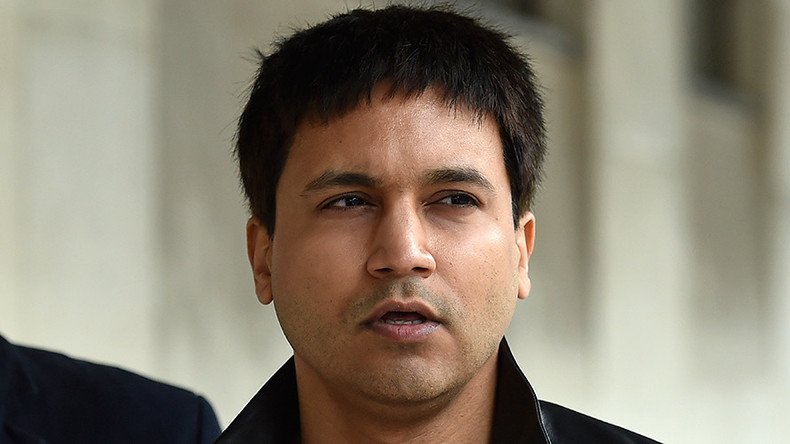UK judge approves extradition of alleged flash crash fraudster to US despite legality concerns

A British judge has approved the removal of a UK national to the United States on fraud charges, despite claims by his defense lawyers that the extradition request is not legal.
Navinder Sarao, 37, is accused of contributing to the Wall Street “flash crash” of 2010 by placing fraudulent orders to “spoof” the market.
He is wanted in the United States on 22 criminal charges, including wire fraud, commodities fraud, and market manipulation.
Sarao, who has a severe version of Asperger’s syndrome, according to his lawyers, denies any wrongdoing. Sarao’s lawyer said he is very disappointed by the decision and intends to appeal the ruling to Britain’s High Court.
British terror suspect’s extradition to US ‘legal’, human rights court rules http://t.co/QgVosdRWEdpic.twitter.com/1ymVC6l5m7
— RT UK (@RTUKnews) January 29, 2015
District Judge Quentin Purdy of the Westminster Magistrates’ Court ruled that Sarao could be extradited to stand trial in the US, where, if convicted, he could be handed a prison sentence exceeding 350 years.
“We are very disappointed,” Sarao’s lawyer, Richard Egan, said following the ruling.
“We think we have still got a strong argument and we will be appealing this decision.”
Home Secretary Theresa May has two months to approve the extradition, after which an appeal can be heard.
Hacker risks US extradition http://t.co/TJyS2WyIOrpic.twitter.com/wSpDYfECty
— RT UK (@RTUKnews) August 1, 2014
Sarao’s lawyers claim that US authorities are guilty of an “abuse of process” because, under extradition agreements between the US and UK, accused persons can only be extradited if they are alleged to have committed a crime that is also a violation of English law. So-called “spoofing” is not a crime in England.
US authorities have accused Sarao of “spoofing” the Chicago Mercantile Exchange – the practice of placing large orders to push down prices and then cancelling or changing them. Sarao then bought the contracts at lower prices, raking in roughly $40 million in profit.
American prosecutors argue that Sarao’s action contributed to the flash crash of May 6, 2010, when the Dow Jones briefly plunged more than 1,000 points, temporarily wiping out almost $1 trillion.
In his written ruling, Purdy stated that Sarao could not have been solely responsible for the crash.
“The causes of the flash crash are not a single action and cannot on any view be laid wholly or mostly at Navinder Sarao’s door, although he was active on the day,” he wrote.
The trader’s barrister, James Lewis, has also challenged the FBI’s allegation that Sarao “materially contributed” to the crash, citing opinions in the City, London’s version of Wall Street, and academia that he could not have done so.
US financial regulators are typically tougher on white collar crime than their UK counterparts.
The Serious Fraud Office (SFO) has had little success in prosecuting financial crime in Britain, with the exception of UBS trader Tom Hayes, who was sentenced to 11-years in prison for conspiring to rig Libor interest rates.












